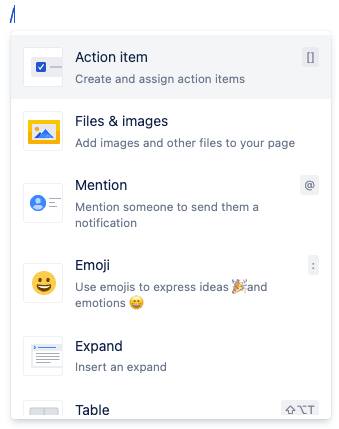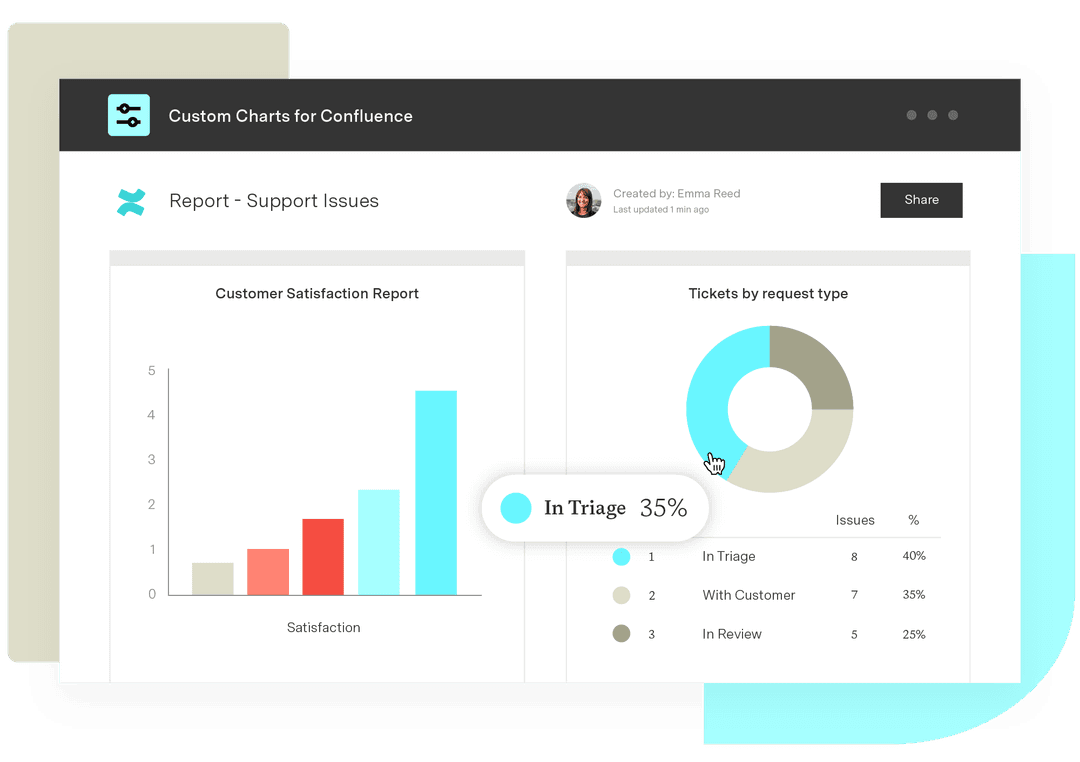Turn groups into teams with the power of Atlassian Confluence
Tempo Team
One of the biggest challenges of project management is building alignment among collaborators – a task that’s especially tricky when the initiative involves multiple organizational departments. You’re juggling numerous communication channels, differing processes, and conflicting priorities to keep everyone on track.
That’s where Atlassian Confluence comes in. Confluence tears down the silos and divisions that create roadblocks for your team, facilitating productive collaborations through a centralized documentation and data system. It ensures coworkers are on the same page, regardless of whether they work across departments, across town, or across borders.
Groups or teams: Is there a difference?
They might be synonyms in the dictionary, but groups and teams are very different in business. Groups comprise individuals with personal agendas and priorities, and their success depends exclusively on their own efforts. Conversely, teams are formed by people working together toward a common goal. Their success depends on effectively combining their skills and efforts to produce the desired outcome.
When managing a project between business groups, various departments often work counter to each other. Managing projects like these can feel like herding cats. You might think the conflict reflects on your project management abilities, but that’s not necessarily the case. Poor alignment generally comes from silos and clashing processes that keep colleagues operating as individual groups as opposed to a unified team.
Your role as the project manager is to nurture the group’s development into an efficient, dynamic, and productive team by providing the tools they need to overcome obstacles and succeed. Confluence is one of those tools.
What is Confluence?
Confluence by Atlassian is a cloud-based software application that builds a collaborative workspace where project group members can come together to share knowledge, capture ideas, and create as a team. Its dynamic pages allow members to structure, organize, and share tasks, giving everyone visibility into workflows and progress.
Confluence also functions as a centralized knowledge base, providing universal access to institutional memory and documentation, such as project plans, issue trackers, budgets, and more, so each individual can complete their job.
Confluence as a single source of truth: Its uses
One of Confluence’s winning features is its flexibility. Atlassian created a multi-purpose, collaborative document management platform that serves the following functions:
Workspace
Intranet
Knowledge base
Document archive
Project wiki
That may seem like an overwhelming amount of content, but Confluence is committed to accessibility. Along with a hierarchical page structure, the platform incorporates functions such as search capabilities, internal links, and activity feeds that establish an open user environment and help you find what you’re looking for.
Although word processing isn’t its primary purpose, Confluence simplifies document generation. With an intuitive page editor, templates, and macros, you can create any documentation you need, from project charters to RFPs and risk registers. Plus, you can customize and standardize your documentation to ensure a consistent framework across projects.
Confluence’s broad utility ensures business group buy-in and regular usage. And consistent use unveils Confluence’s ultimate benefit – transforming into a single source of truth for your projects. With up-to-the-minute data stored in one location, colleagues align on project requirements, priorities, and outcomes.
In other words, they become a team.
Tips to master Confluence
The breadth of Confluence’s functionality means it can take a while to master. Encourage your team to explore and create their first wiki with what they discover. If you hit any snags, don’t be afraid to hit up the Atlassian Community for help.
In the meantime, here are a few suggestions to get you and your team started:
Learn keyboard shortcuts
Become a Confluence wizard by mastering the power of the slash command. Tap the “/” key from any page to open a menu loaded with options. You can do everything from accessing tools and adding emojis to embedding Trello boards and macros with a single keystroke.

(Source: Atlassian)
Various keyboard shortcuts are also available, allowing you to cruise between Confluence features in a snap.
Make use of templates
Confluence has an extensive template library, so you never have to create a strategic plan, employee handbook, or retrospective document from scratch. You can even customize them to match your company branding.
Branch out with page trees
Improve searchability by structuring related pages into a single page tree. Thanks to the Confluence macro, configuring a tree is fast and easy. If you need to repeat the page structure for another project or sprint, duplicate the entire tree, including its child pages, by selecting “Copy” from the “More actions” menu.
Limit access
Confluence is a fully accessible space by default. But that doesn’t mean it has to stay that way. Sometimes, unrestricted access can lead to information overload. Instead, be selective about who can see what within the platform and its pages.
Curating accessibility at the page or element level according to confidentiality needs or your communication plan ensures different project teams access only the information relevant and impactful to their work without running the risk of becoming overwhelmed. For example, the marketing department doesn’t need to know the extent of the software development team’s activities.
Click the restrictions icon in the top-right corner of your Confluence page to edit accessibility permissions to a specific stakeholder audience.
Integrate Confluence with Jira software
As a project manager, you’re probably aware of the Jira Cloud platform for software development, Jira Work Management (JWM) for general project management, and Jira Service Management (JSM) for service desk teams. But did you know you can combine Confluence with any Jira platform to create a seamless collaborative project management tool?
All the same features are there, but with Jira and Confluence linked, each software solution supports the other. For example, you can import Jira data into Confluence to create status reports or link project documentation from Confluence to provide context for Jira issues and bug tracking.
The combination is especially powerful for service desk agents. The connection creates a customer support portal containing service-related wiki articles hosted by Confluence. Within this collaborative space, the support team can write wikis, troubleshooting guides, and FAQs based on service desk issues. These articles expand the platform’s knowledge base, allowing future customers to self-serve and saving the ITSM team time and resources.
Add third-party apps
Confluence is excellent on its own, but you can extend its capabilities further by adding third-party applications from the Atlassian Marketplace. You’ll find tools to suit any need, including Trello, Bitbucket, and Tempo’s Custom Charts for Jira.
Managing apps in Confluence is straightforward, thanks to Atlassian’s Universal Plugin Manager (UPM). The UPM allows you to add, remove, and configure third-party applications without IT support. To access, go to Settings, then select “Manage apps” from the Confluence sidebar.
Is Confluence right for your enterprise?
Confluence is for anyone. Whether you’re a small start-up with a handful of employees or a vast multinational, the software is scalable to meet your needs. It’s effective for teams engaged in high-stakes projects requiring rigorous documentation practices, but it also works for newly established crews looking to build an engaging and authentic team culture.
If you want a cohesive, collaborative, scalable space for cross-functional teams to share information, capture ideas, and work effectively together on any project, Confluence is for you.
Make the best out of Confluence with Tempo
Tempo understands Confluence is the lynch-pin solution for successful collaboration. That’s why we’ve created a suite of applications to enhance and support software functionality so you can help teams focus and optimize around your organization’s highest priorities.
Tempo offers something for everyone.
Structure PMM helps bridge the gap between managing requirements in Confluence and tasks in Jira
Strategic Roadmaps brings your project plan to life, helping you create a boardroom-ready roadmap that outlines priorities, bottlenecks, and more
Custom Charts for Jira and Confluence lets you review a wide variety of data on your Confluence dashboard
Upgrade your Confluence experience with Tempo. Just like your team, they work better together.
Sign up for a demo
Register












































